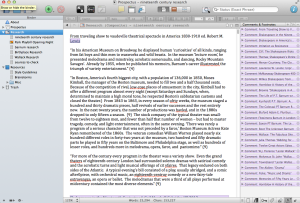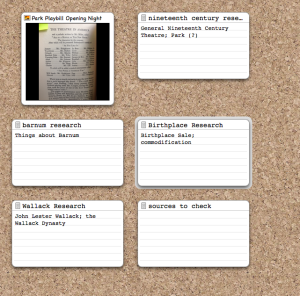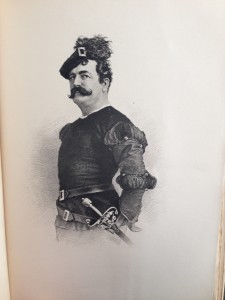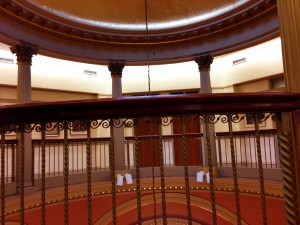I’ve been fielding a lot of questions about social networking recently. This has led me to believe that perhaps it’s time for a little chat about social networking… again. You might recall my series on social networking (and if you don’t, it’s totally worth a read… and not just because I wrote it). I’m not planning to reiterate everything I said there. I want to talk about twitter today from a slightly more advanced perspective. There are plenty of blogs devoted to how to set up twitter and get started; I’d like to pick up where those blogs left off.
So, you have a twitter account. You have the twitter ap. What the heck do you do with it now?
Think of twitter as a party. A large, loud party where everyone is shouting at the top of their lungs and has had a little too much to drink so they’re really only half paying attention to the people around them. Content posted on twitter is extremely ephemeral; like Dorothy says “people come and go so quickly here”. Because of the LARGE amount of tweeters most people follow on their twitter feed, and because twitter is so quick and easy to update, content scrolls past on an extremely disposal basis.
The key to successful tweeting, then, is virality. You’re not on twitter because you think that one tweet will change the world (unless your Lady Gaga who has 41,217,143 followers). You’re on twitter in the hopes that someone else will retweet your content.
Say you have 208 followers (the average number of twitter followers per user, according to Craig Smith). You tweet something; say a link to your most recent blog post. At best, that tweet is seen by 208 people. But, if one of your followers retweets the link, then you can double your audience with one click. If two of your followers retweet the link, you’ve effectively tripled your audience. You can snowball your twitter exposure by tweeting retweetable content on a regular basis.
But what’s retweetable content? Tweet something that’s provocative. Tweet something that will start a conversation. Tweet something inordinately witty.
If you’re looking to get someone’s attention, tag them in the tweet. For instance, if I’m blogging about large theatre companies, I will often tag them in a tweet with a link to my review. I know that they have more followers than I do and, if I can get them to retweet my link, my exposure suddenly goes through the roof.
If you’re looking for followers, you need to put some serious thought and effort into cultivating relationships. Technology enables quick communication, but that doesn’t mean that you should stop being a human presence. The best way to get others invested in your content is to invest in theirs; when you retweet something add a little comment of your own. “This is great!” or “very interesting!” shows the person you’re retweeting that you A) read the content, B) enjoyed the content, and C) think it’s worth the little extra time
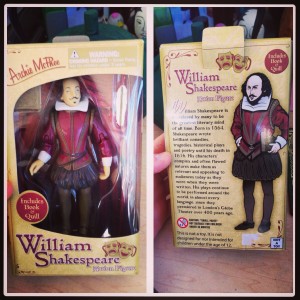
Instagram has encouraged me to take the kinds of pics that I would normally tweet; like this one for instance of my new desk-Will
to add a personal flair. The more you do this, the more likely the effort is to be reciprocal.
Start conversations with people. This is most easily done through the use of hashtags. Hashtags, for those not down with the lingo, are those hot-linked words in a tweet preceded by the “#” symbol (i.e. #Shakespeare, #Daniprose, #busyday). Have a look at the trending hashtags (there’s a list of them on the left of your feed if you scroll down a bit) and see if you can’t get in on that conversation somehow with your content. Hashtags are an easy way to archive your content in a place where like-minded individuals are most likely to find it.
A common question that I’m asked is “how often should I tweet?”. The answer to this is more than once a day, for sure. Again, remember how disposable twitter content is. The more you tweet, the more likely it is that your content will actually be seen. The most common argument to this is “well I simply don’t have time”. Tweets are 150 characters; make time if you want a healthy feed. Install the twitter ap on your smart phone and tweet while you’re standing in line for coffee. Take pictures on your commute and tweet that. Remember that a tweet isn’t a commitment to the content, just a commitment to an aesthetic. If you’re wondering what you should be tweeting, check out some feeds of large organizations or famous personalities upon whom you’d like to model your web presence. What kinds of things do they tweet?
If you’re wondering whether you’re hitting your tweeting goals, check out your feed every now and again. Look, honestly, at the content that you post. Is it interesting? Is it something you enjoy reading? Would you follow you? If the answer is “no”, try to determine why. Too many retweets without added commentary? Not enough frequency? Or is this just not the kind of person you would associate with? Objectively examining your social networking feeds on a regular basis is a healthy practice; you need to know how you come off if you’re looking to improve your web presence!
So tweet away, tweet-verse; experiment! Grow, prosper! Now, gods, stand up for tweeters!


